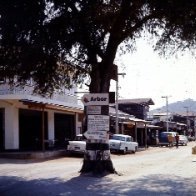Has Anyone Thought About "gray Water Systems?"
-
Recently Browsing 0 members
- No registered users viewing this page.
-
Topics
-
-
Popular Contributors
-
-
Latest posts...
-
52
Tourism Thailand Delays Tourist Entry Fee Amid Travel Concerns
My sense is that several Permanent Secretaries (transport, tourism & sport, interior, culture) all want to "manage" (AKA pilfer) this MASSIVE slush fund - at 30 million visitors, this would be a 9 BILLION Baht (annually) treasure chest. And none want to yield. -
0
The Leftists Sanctuary Cities and allowing Amnesty for Millions of Illegals …
…“A sanctuary city is a municipality that limits or denies its cooperation with the national government in enforcing immigration law”. Its premise is radically flawed and unconstitutional & illegal.And a component of it ,Delivering Amnesty to millions of illegal non citizens is a slap in the face to the Republic for which it stands, where federal immigration laws were set 100 years ago. https://en.m.wikipedia.org/wiki/Sanctuary_city the story us based on a Wikipedia reference -
52
Tourism Thailand Delays Tourist Entry Fee Amid Travel Concerns
Maybe only charge a processing fee for those who enter under the Visa waver program. -
1
Short-Time Life vs. Thai Wife Life: Who’s Actually Winning?
The wife came with her own house, inherited half ownership of a rice farm and other entrepreneurial ventures she created and has her own money as do I. Though this is normal any two self respecting people. The folk you are citing here behaved the same way as they did in their home country, what else is new? -
11
Transport Thailand's High-Speed Rail Bidding Opens for 2026
My understanding of the High-Speed Trains running in Thailand is that they will be operating at less than 150 kph. Can anyone confirm different ? -
1
SIDS - Sudden Infant Death Syndrome - Is Caused By Vaccines
Another great expose from Red. All be it a sorrowful one. When will the white-coats stop pumping filth into babies, toddlers and kids? Do no harm? They should hang their heads in shame. And if one of my beautiful kids have been killed by a vaxx, I'd be demanding much more than them hanging heads.
-
-
Popular in The Pub




.thumb.jpeg.d2d19a66404642fd9ff62d6262fd153e.jpeg)








Recommended Posts
Create an account or sign in to comment
You need to be a member in order to leave a comment
Create an account
Sign up for a new account in our community. It's easy!
Register a new accountSign in
Already have an account? Sign in here.
Sign In Now